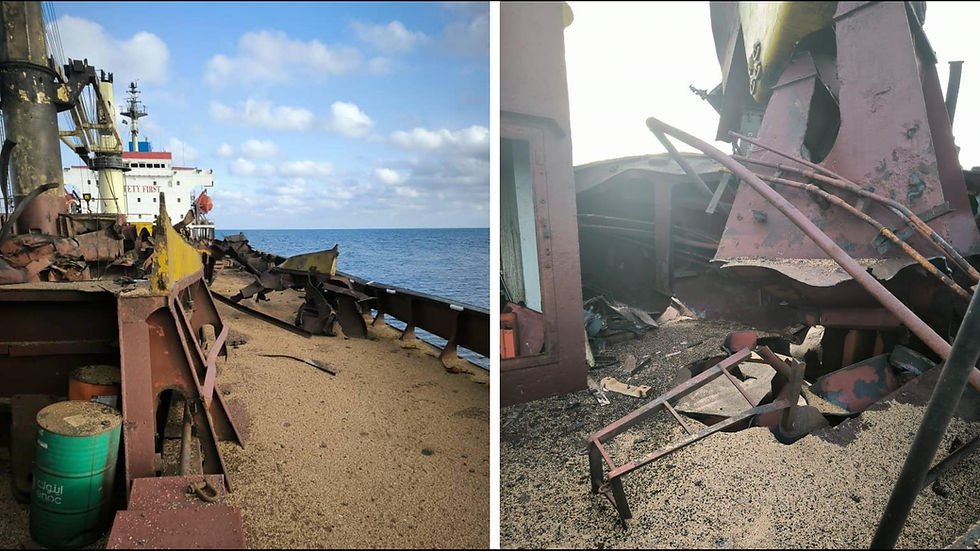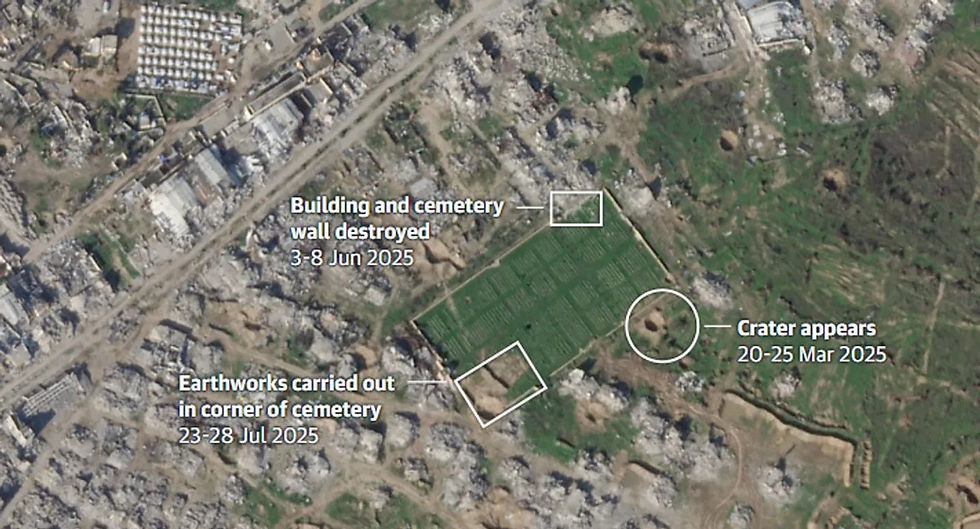Russian missile hits ship with Egyptian, Syrian crew
- Next News
- Oct 9, 2024
- 2 min read
Ukraine said on Monday that a ship carrying corn, with an Egyptian and Syrian crew, was attacked by a Russian missile.

The Ukrainian Ministry of Development and Infrastructure reported that a Russian missile hit a civilian ship flying the flag of Saint Kitts and Nevis in the port of Pivdny near Odessa on Sunday.
The ship is called the "Parissa" and was loaded with 6,000 tons of corn.
The ministry explained on Facebook that the 15 Egyptian and Syrian crew members were not harmed.
It noted that this is the 20th time that a civilian ship has been harmed by Russian attacks.
Later, Ukrainian authorities reported that a Russian missile hit a ship flying the flag of Palau in the southern port of Odessa, killing a Ukrainian and wounding five other crew members, in the second attack of its kind in two days.
Ukrainian Foreign Minister Andriy Spiva condemned Russia’s actions on the X platform, noting that the ships were damaged in the Black Sea grain export hub without providing details on their condition.
“We must unite the efforts of all responsible countries and organizations to ensure freedom of navigation in the Black Sea and global food security,” he added.
An email to the Russian Defense Ministry did not immediately receive a response, and Moscow has repeatedly denied targeting civilian targets.
Odessa Region Governor Oleh Kiber noted in a Telegram post that the person killed in the latest attack was a dock worker, and that the five injured were foreign crew members.
Deputy Prime Minister Oleksiy Kuleba identified the ship as the Optima, noting that it had arrived in Odessa hours before the attack.
Kuleba explained that Russia “is trying in this way to destroy navigation in the Black Sea and ensure food security, and the results mean nothing but more instability in sensitive regions dependent on food imports and increased tensions in international relations.”









Comments